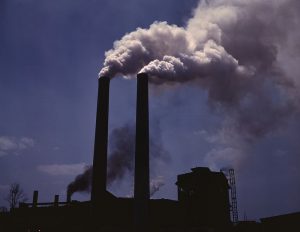39 item(s) were returned.
Federal Energy Manager, Energy Policy
R Street Institute
The Trump administration is close to an official announcement freezing fuel economy standards for U.S. cars and light-trucks at their 2020 levels (roughly 35-37 miles per gallon), rather than continuing to increase them to around 50 mpg by 2025. The end of Obama-era standards should not be interpreted as either a terrible idea for the environment or a victory for automakers and polluters. Instead, it’s an opportunity to end a regulatory system that failed to deliver on its promises for decades. Congress’ intent when it passed the 1975 Corporate Average Fuel Economy (CAFE) Act was to reduce the amount of… [more]
View InsightLast Monday, Scott Pruitt announced that the Environmental Protection Agency will now consider the burning of biomass for energy to be carbon neutral. The agency memo points out that the use of biomass for energy can bolster domestic energy production, reduce wildfire risk, and help ensure that forests continue to remove carbon from the atmosphere. The memo further states that “Managed forests improve air and water quality while creating valuable jobs and thousands of products that improve our daily lives.” Despite the ruling, the debate continues over the carbon neutrality of biomass. Scientists and various non-governmental organizations have raised concerns… [more]
View InsightSenior Fellow in Energy and Environmental Policy
Competitive Enterprise Institute
On Monday, Environmental Protection Agency (EPA) administrator Scott Pruitt announced that the Obama EPA’s greenhouse gas emission (GHG) standards for model year 2022-2025 cars and light trucks will be reconsidered by the agency. Critics have pointed out that the stringent Obama era CAFE standards, peaking at 54.5 MPG in 2025, are too strict and potentially price millions of Americans out of the market for new cars while also failing to have a meaningful impact on GHG levels. Unlike other emissions from motor vehicles, CO2 is not an air contaminant. Yes, it is a greenhouse gas, but so is water… [more]
View InsightPresident
The Stella Group, LTD
This month, reports surfaced that critical energy savings programs like ENERGY STAR could be defunded as part of the Trump Administration’s FY’18 budget. Last week, the President’s Budget Blueprint confirmed the rumors to be true. According to E&E news, a draft of the proposed budget cuts contained language stating “EPA should begin developing legislative options and associated groundwork for transferring ownership and implementation of ENERGY STAR to a non-governmental entity.” Today, millions of consumers and businesses choose ENERGY STAR—demonstrating that the program has earned credibility in the marketplace. When the Department of Energy and the Environmental Protection Agency developed the… [more]
View InsightPresident-elect Donald Trump has nominated Oklahoma Attorney General Scott Pruitt as Administrator of the Environmental Protection Agency (EPA) and former Texas Governor, Rick Perry, as the next Secretary of the Department of Energy. Some observers have noted that the nominations of Pruitt and Perry suggest that Mr. Trump intends to follow through on campaign promises to pursue energy policies supporting the development of fossil fuels. Pruitt and Perry each hail from states with strong oil and gas industries and both are known for their at-times skeptical views regarding the EPA and DOE, respectively. Mr. Pruitt describes himself as “a leading… [more]
View InsightVisiting Scholar
American Enterprise Institute
When last we joined hands around the ourenergypolicy.org campfire, roasting s’mores and singing songs of camaraderie, we told tales of one particular monster of the dark, to wit, the Obama administration analysis of the social cost of carbon, perhaps the most dishonest exercise in political arithmetic ever produced by the federal bureaucracy. But this is the Beltway: No perfidy goes unrewarded. And so it is with the SCC, now tailor-made for the justification of rules utterly preposterous. Consider for example the Environmental Protection Agency efficiency rule for medium- and heavy trucks, part of the administration’s climate action plan; EPA has… [more]
View InsightThe International Civil Aviation Organization (ICAO) finalized an agreement to cap the aviation industry’s CO2 emissions at 2020 levels. Due to the cross-border nature of aviation, this sector, which is responsible for 2 percent of all GHG emissions globally, was excluded from the Paris Agreement in 2015. Although the agreement’s mandatory phase begins in 2027, more than 60 countries will voluntarily participate in the Carbon Offsetting and Reduction Scheme for International Aviation (CORSIA) beginning in 2021. CORSIA is a market-based measure capping emissions at 2020 levels. Airlines that exceed the emissions cap can offset their excess CO2 in two ways.… [more]
View InsightIn May, the Environmental Protection Agency (EPA) released regulations designed to curb methane (CH4) emissions from new, modified and reconstructed oil and natural gas sources. As part of the Obama administration’s effort to combat climate change, the rule attempts to reduce methane emissions by as much as 45% from 2012 levels by 2025. According to the EPA, methane is the second most prevalent greenhouse gas emitted by humans on a pound for pound basis. Although the atmospheric lifetime of CH4 is much shorter than carbon dioxide (CO2), methane is at least 25 times more potent at trapping heat in the… [more]
View InsightToday the aviation industry is responsible for about 2% of all GHG emissions. Experts predict that by mid-century, this number could triple without policies designed to combat aircraft emissions due to rapid industry growth. In response, the International Civil Aviation Organization’s (ICAO) Committee on Aviation Environmental Protection (CAEP) has been negotiating a CO2 emissions standard for aircraft emissions with representatives from its member states, industry and non-governmental organizations. On February 8th, the CAEP unanimously approved a draft measure paving the way for final approval in 2016. If the ICAO emissions standards are approved by the ICAO’s 36-State Governing Council, the… [more]
View InsightExecutive Director
Energy Storage Association
It’s been two months since the Environmental Protection Agency (EPA) released the Final Rule for the Clean Power Plan (CPP). Even if you haven’t read all 1560 pages yet, you probably know the gist of it by now. At its core, the CPP identifies three building blocks in setting the goal for each state: (1) lowered heat rates at coal-fired steam plants, (2) increased utilization of existing natural gas combined cycle plants, and (3) increased deployment of utility-scale non-emitting renewables. Most notably, energy efficiency (EE) is missing from that list, which is a change from the 2014 proposal. However, while… [more]
View Insight








